A Guide to Cantonese vs Mandarin Before Travel to China | 2024 (with Examples)
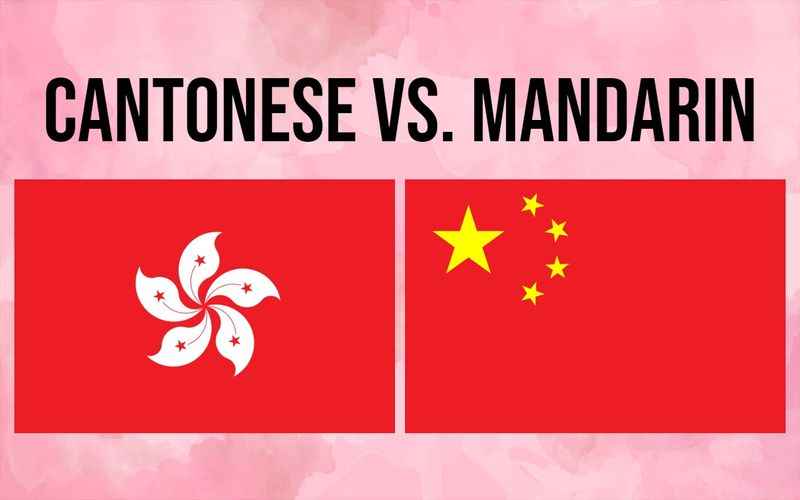
Traveling to China for many people is a life-changing experience but it can be quite challenging if you don't speak any Chinese. There are several Chinese languages, but the main two main languages in China are Mandarin and Cantonese.
So, before you head to China, you should look into the Mandarin and Cantonese languages, discover where each is spoken and decide which Chinese language you would like to study.
We will explore the key differences between Mandarin and Cantonese, as well as some similarities so you can make an informed choice.
Knowing some basics in either Chinese language will make it a little easier to explore the country, order food, ask for directions, and read signs.
Where is Cantonese Spoken?

Cantonese is the local dialect of China's southeast region, and Cantonese speakers live almost entirely on the coast.
This region comprises Guangdong Province (capital Guangzhou, previously known as Canton, from which the term “Cantonese” derives) as well as southern Guangxi Province further west.
Cantonese is also the main language of Hong Kong and Macau, both of which you will see on the map above. Within these areas, public discourse takes place almost exclusively in Cantonese.
This makes it the only variety of Chinese, other than Mandarin, to be used as an official language in the world.
How Many People Speak Cantonese?

In China, there are an estimated 63 million native Cantonese speakers, highlighting the significance of this regional language.
Cantonese, known for its unique tonal qualities, holds a special place among the numerous Chinese dialects.
While this number may seem substantial, it represents just 5% of China's vast population. However, it's important to note that Mandarin, as the official language, boasts a much larger speaker base.
With around 40 million Mandarin speakers living overseas, the worldwide count of Mandarin speakers reaches approximately 930 million.
The ability to communicate in Mandarin opens doors to interact with a broader range of Chinese speakers, while familiarity with Cantonese allows for a deeper connection with the cultural heritage of specific regions.
Where is Mandarin Spoken?
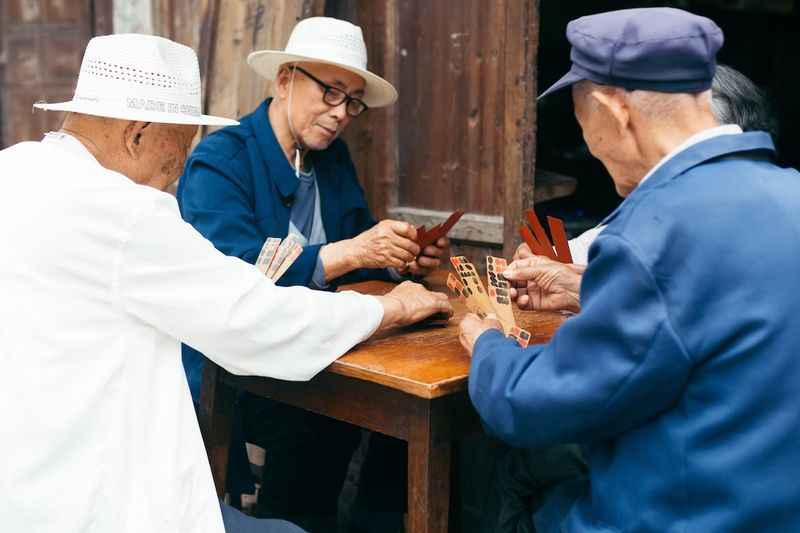
Mandarin is the official state language of China. It is the most commonly spoken language in the country, spoken by around 70% of China's population, predominantly in the north and center of the country. There are significantly more Chinese people who speak Mandarin than Cantonese.
Locals of the largest and most populated cities speak Mandarin, including Beijing and Shanghai. It is also the most widely spoken language in Taiwan and Singapore.
By learning Mandarin, you gain access to a vast community of speakers, enhance your communication capabilities, and develop a deeper understanding of Chinese culture.
Whether you plan to travel to mainland China or engage with the Chinese diaspora, Mandarin opens doors to meaningful interactions and cultural experiences.
How Many People Speak Mandarin?

As we have seen, both Mandarin and Cantonese are useful when traveling to mainland China.
However, by contrast to the 63 million people that speak Cantonese in China, Mandarin is the first language of almost 70% of China's population, which equates to more than 930 million people.
In recent years, the number of native Chinese people living abroad has increased significantly and it is expected to continue to rise.
Chinese Characters: Cantonese vs Mandarin
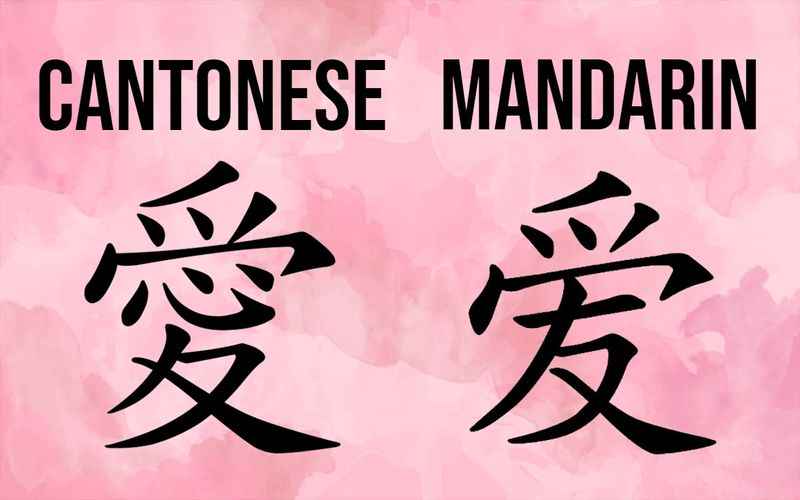
You may have heard Mandarin referred to as Simplified Chinese. This is due to the fact that Mandarin characters are simplified versions of their Cantonese counterparts, known as Traditional Chinese.
Whilst both Cantonese and Mandarin characters derive from the same origin, Ancient China, there is a clear difference between the two, particularly in terms of complexity.
Those who are able to read traditional characters are able to understand [simplified characters] quite easily.
However, anybody who reads simplified Chinese characters first and foremost will struggle to understand Cantonese characters.
Learning Chinese Languages Before Traveling to China
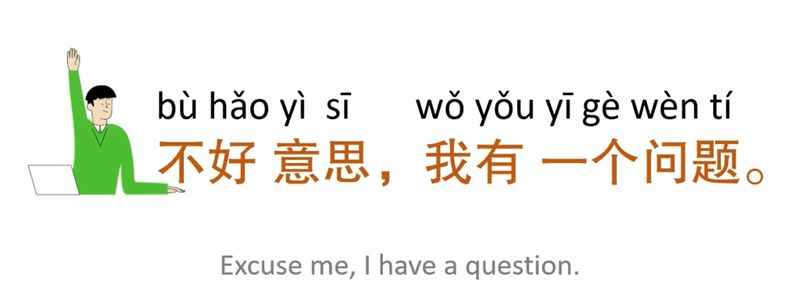
Learning Chinese languages, particularly Cantonese and Mandarin, can greatly enhance your experience when traveling to China. Cantonese, spoken primarily in Guangdong Province and Hong Kong, is a tonal language and one of the main dialects of Chinese.
It utilizes traditional Chinese characters and is widely spoken among Chinese immigrants and the local population.
Mandarin, on the other hand, is the official state language of China and serves as a lingua franca for Chinese speakers. It uses simplified Chinese characters and is the native language of the majority of Chinese people.
Learning Mandarin is particularly useful as it is the second most spoken language globally and allows you to communicate with a broader range of people.
Before your trip, it is beneficial to learn basic Cantonese and Mandarin words and phrases. Understanding the tonal nature of these languages is crucial for accurate pronunciation and comprehension.
Additionally, familiarizing yourself with the written forms of both languages enables you to read traditional and simplified Chinese characters.
By learning Cantonese and Mandarin, you can navigate China with greater ease, connect with locals, and fully immerse yourself in the rich cultural heritage of the country.
Your language skills will undoubtedly enrich your travel experience.
Simplified Chinese Characters

Simplified Chinese characters were created and enforced by the Chinese government in the 1950s.
This helped the population (particularly children) learn the language more easily and increased literacy rates amongst the Chinese population.
As established, Cantonese still uses traditional characters. These are much more complex than Mandarin characters, requiring more strokes and taking slightly longer to write.
This makes traditional Chinese characters harder to differentiate from one another than simplified characters.
Character Examples

The example below demonstrates the difference in complexity between Cantonese vs Mandarin characters.
The symbol for 'dragon' in Mandarin is written in this simplified character: 龙 (lóng)
The symbol for 'dragon' in Cantonese is written in this traditional character: 龍
The simplified version of the word 'dragon' requires five strokes in total. By contrast, the traditional Cantonese character requires a staggering 16 strokes.
Below is another example, the character of the Chinese province of Guangzhou, where Cantonese is the main language. The characters for both Cantonese and Mandarin are as follows:
- In Mandarin, the simplified character is 广州.
- In Cantonese, the traditional character is 廣州.
You'll notice several similarities between the two symbols, particularly in terms of structure. However, many of the strokes are removed from the simplified Chinese version.
Both examples illustrate why Mandarin readers cannot usually understand Cantonese characters unless they are proficient in both languages.
Cantonese vs Mandarin: The Spoken Languages
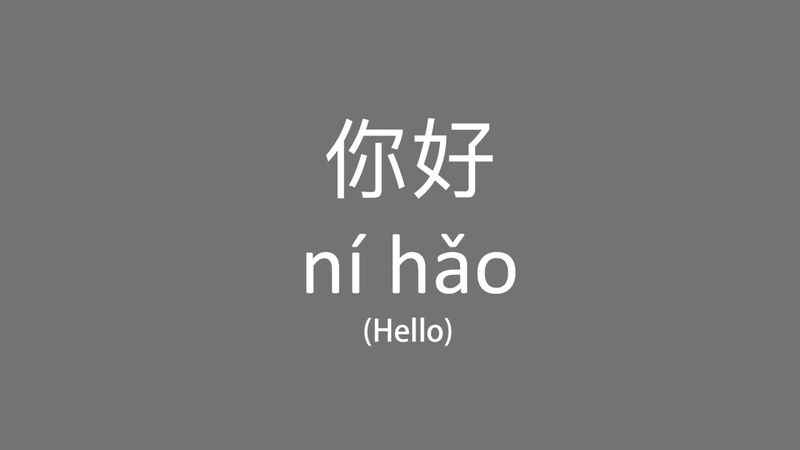
Contrary to popular belief, Cantonese and Mandarin do not sound particularly alike and are certainly not mutually intelligible.
Generally speaking, Mandarin speakers are unable to understand Cantonese.
Whilst the same character syllables are used for similar words in Cantonese and Mandarin, the pronunciation of the symbols tends to vary greatly.
For this reason, they are considered different languages.
An example of similar pronunciation of spoken words can be is as follows:
- ‘Hello’ in Mandarin is nǐ hǎo, which is pronounced ‘nee-haow’.
- ‘Hello’ in Cantonese is néih-hóu, which is pronounced ‘nay-hoh'.
A speaker of one language would likely be able to understand the other, given the context. However, the example below illustrates a much more marked difference in pronunciation.
In Mandarin, you can ask someone if they have eaten yet by asking: Chīfànle ma?
Alternatively, you would ask the same question in Cantonese by saying: Lei sik dzo fan mei a?
As you can see from these examples, Cantonese and Mandarin may share some similarities, but they are not mutually intelligible, neither in written nor spoken format.
The Tones
There are five tones with which to familiarize yourself when learning the language of Mandarin. Cantonese, on the other hand, comprises nine tones.
In both languages, tones are incredibly important when it comes to conveying meaning.
Using the wrong tone can change the meaning of a sentence entirely. This is true in many Asian languages; learners will need to learn all of the tones in order to develop any real sense of fluency.
Hong Kong Cantonese differs quite radically from many other regions. This is due to the fact that three of the nine tones have been merged. So, you only need to learn six tones, instead of the nine required elsewhere.
This makes Hong Hong Cantonese on par with Mandarin in terms of difficulty.
Hong Kong Cantonese tones are described as follows:
Dark Flat, Light Flat, Dark Rising, Light Rising, Dark Departing, Light Departing
Cantonese vs Mandarin: Expressions and Idioms
Both Cantonese and Mandarin use expressions and idioms. However, once again, they are not mutually intelligible and often vary by region.
If Cantonese speakers were to read an excerpt of simplified Mandarin writing, they might not be able to understand certain elements of the message conveyed by the author.
Particularly, if a colloquial or idiomatic expression is used.
Mandarin idioms
In this section, we'll look at some common and interesting Mandarin idioms.
1. 九牛一毛 (jiǔ niú yì máo)
Meaning: nine cows and one strand of cow hair. This Mandarin idiom is used to express something that is so small. The visual illustration is fairly self-explanatory.
You're unlikely to notice a strand of hair on nine large cows!
2. 不经一事,不长一智 (bù jīng yī shì, bù zhǎng yī zhì
Meaning: Wisdom comes from experience.
The message here is similar to the famous quotation by Albert Einstein "The only source of knowledge is experience."
3. 理所当然 (lǐ suǒ dāng rán)
Meaning: That goes without saying.
We have an equivalent English proverb, so this is quite easy for learners to use.
Taking Online Courses Before Traveling to China

Taking online courses before traveling to China is a smart move, especially considering that Mandarin is the official language and the most widely spoken language among Chinese people.
Mandarin, being a tonal language, requires focused attention on pronunciation and intonation.
By familiarizing yourself with Mandarin through online courses, you can develop essential language skills such as speaking, listening, and reading written Chinese characters.
While Mandarin is the predominant language in China, Cantonese is also spoken by a significant number of people, particularly in regions like Guangdong Province and Hong Kong.
Learning Cantonese words and phrases can be beneficial if you plan to visit these areas.
Online platforms like Italki, Yoyo Chinese, and FluentU offer valuable resources for learning Mandarin and exploring various aspects of the language.
From interactive lessons tailored to your schedule to immersive videos with real Mandarin speakers, these courses can provide you with a solid foundation and practical language skills for your upcoming trip to China.
By investing time in online courses, you'll enhance your ability to communicate with Mandarin speakers, understand Cantonese dialects, navigate local environments, and fully immerse yourself in the vibrant culture and rich linguistic diversity of China.
Learn Mandarin or Cantonese Online
Now, let's elaborate on those online courses for learning Mandarin and Cantonese.
Italki

Italki is an online tutor marketplace that enables you to filter through tutors based on price, experience, location, and student reviews.
This will allow you to learn Mandarin or Cantonese quickly and effectively, as long as you have at least a basic understanding of either language already.
Sessions on Italki are tailored to your schedule, so you can fit it between your day-to-day tasks. You can also tailor your sessions to what you want to learn about, such as specific categories or cultural topics.
That way, you aren’t paying to learn something that you’re not going to use.
Yoyo Chinese

Yoyo Chinese is one of the most established and popular websites for online Chinese Mandarin courses.
Yanyang is a former university professor who has helped thousands of students achieve conversational Chinese within a six-month timeframe. Her course videos have been viewed millions of times.
The Yoyo Chinese USP is that its lessons explain Chinese in a way that makes sense to English speakers.
The courses contain both videos to follow and quizzes to ensure that you remember what you’ve learned.
FluentU

FluentU is a fantastic resource that takes clips from real Mandarin speakers and makes them accessible to learners.
Through this method, it helps you to become fully immersed in the world of Chinese, with built-in flashcards, notes, and a translation dictionary.
In addition to this, there are clips on FluentU covering just about any topic you can think of.
Topics range from business and politics to popular culture, folktales, songs, and even children’s stories. With over 2000 videos in Mandarin, there are plenty of choices.
Summing Up: A Guide to Cantonese vs Mandarin Before Travel to China
We hope this Cantonese vs Mandarin comparison post has provided you with a comprehensive understanding of the key differences between both languages.
Mandarin is easier to learn both in terms of reading and speaking. This is because the characters are simplified and there are fewer tones to learn.
However, that is not to say that Mandarin is a simple language to learn.
If you would like to tackle Cantonese, you will need to commit to daily studies, regular conversation practice, and writing lessons.
There are plenty of online Chinese courses which will help you to learn to speak Cantonese or Mandarin.
Some are much better than others and knowing the good ones will help you get started once you decide to travel to China.







